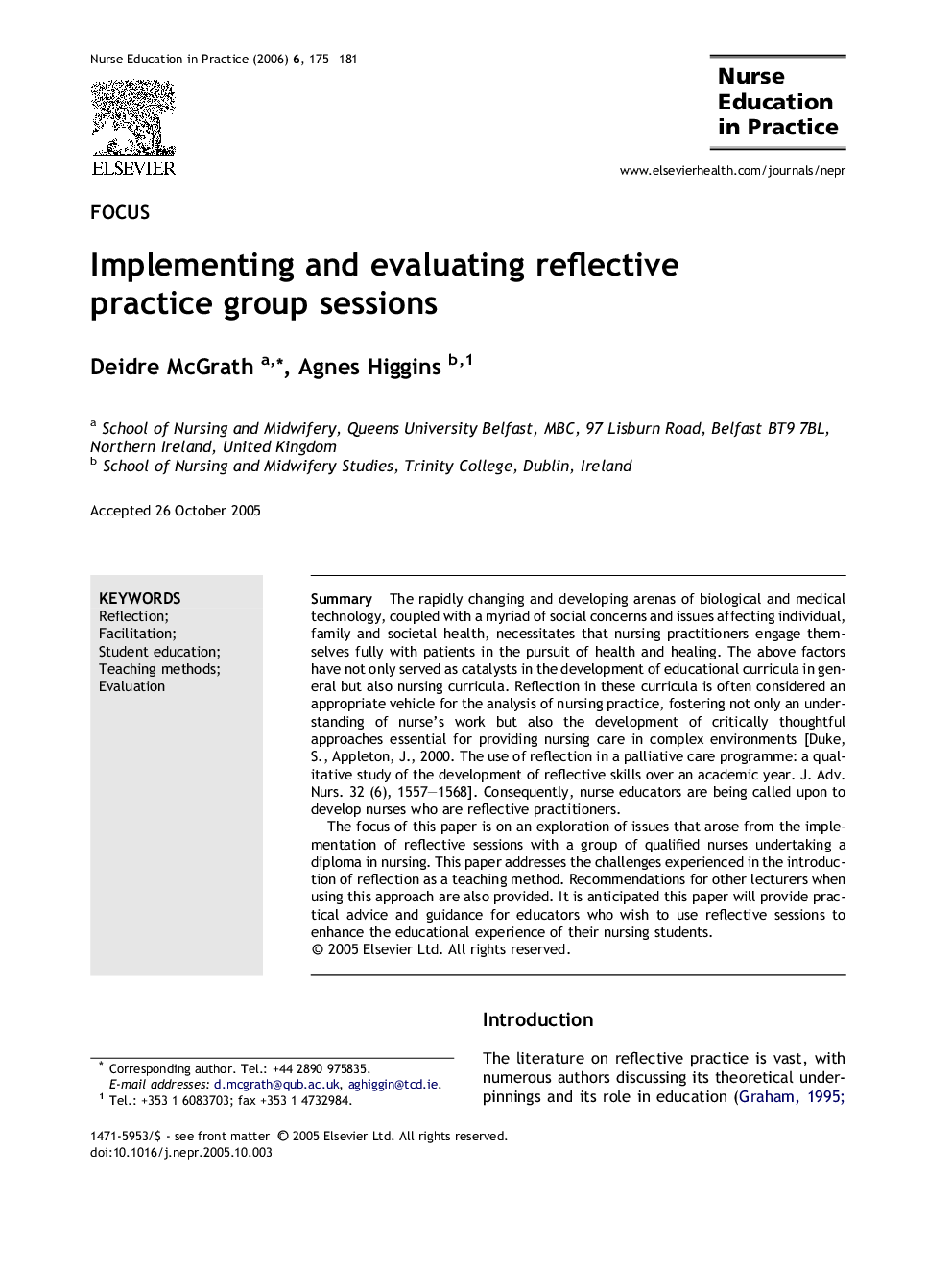| Article ID | Journal | Published Year | Pages | File Type |
|---|---|---|---|---|
| 367780 | Nurse Education in Practice | 2006 | 7 Pages |
SummaryThe rapidly changing and developing arenas of biological and medical technology, coupled with a myriad of social concerns and issues affecting individual, family and societal health, necessitates that nursing practitioners engage themselves fully with patients in the pursuit of health and healing. The above factors have not only served as catalysts in the development of educational curricula in general but also nursing curricula. Reflection in these curricula is often considered an appropriate vehicle for the analysis of nursing practice, fostering not only an understanding of nurse’s work but also the development of critically thoughtful approaches essential for providing nursing care in complex environments [Duke, S., Appleton, J., 2000. The use of reflection in a palliative care programme: a qualitative study of the development of reflective skills over an academic year. J. Adv. Nurs. 32 (6), 1557–1568]. Consequently, nurse educators are being called upon to develop nurses who are reflective practitioners.The focus of this paper is on an exploration of issues that arose from the implementation of reflective sessions with a group of qualified nurses undertaking a diploma in nursing. This paper addresses the challenges experienced in the introduction of reflection as a teaching method. Recommendations for other lecturers when using this approach are also provided. It is anticipated this paper will provide practical advice and guidance for educators who wish to use reflective sessions to enhance the educational experience of their nursing students.
